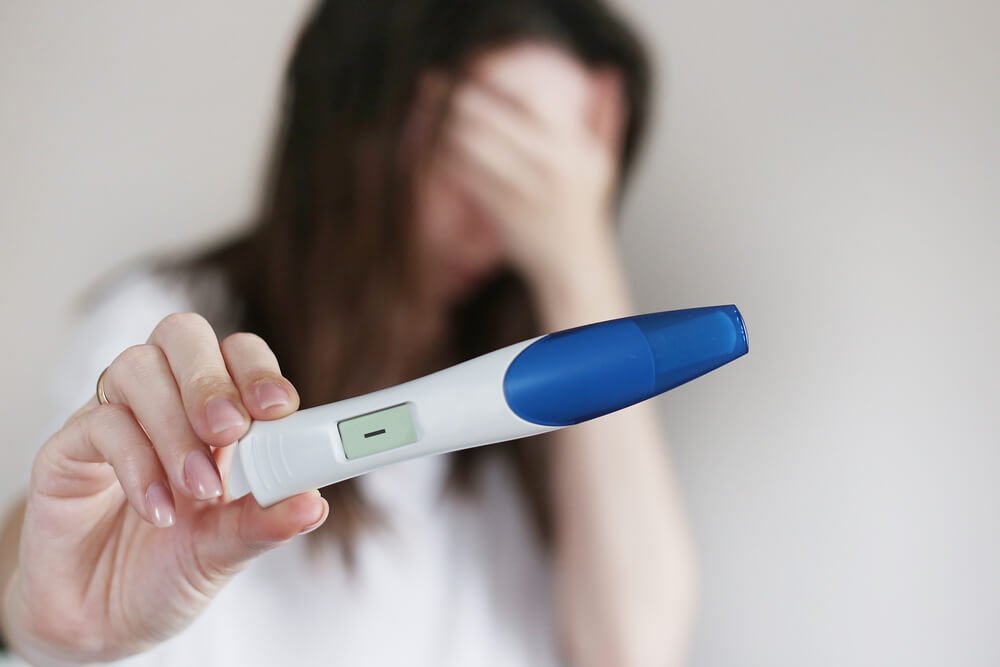What are the symptoms of secondary infertility?
Secondary infertility refers to the inability to conceive after previously having one or more successful pregnancies. The symptoms of secondary infertility can be subtle and may overlap with general reproductive health issues. Common signs and symptoms associated with secondary infertility include:
- Irregular Menstrual Cycles: Women may experience changes in the regularity or length of their menstrual cycles.
- Changes in Menstrual Flow: Changes in the amount or duration of menstrual bleeding can be an indicator of underlying issues.
- Painful Menstruation: Painful periods, or dysmenorrhea, can be a symptom of reproductive health issues affecting fertility.
- Difficulty Conceiving: The primary symptom is the difficulty in conceiving after trying for an extended period, typically more than one year.
- Unexplained Recurrent Miscarriages: Experiencing multiple miscarriages can be a sign of underlying fertility problems.
- Hormonal Symptoms: Symptoms such as hot flashes, night sweats, or mood swings may indicate hormonal imbalances affecting fertility.
- Sexual Dysfunction: Issues like pain during intercourse or reduced libido can affect the ability to conceive.
- Male Symptoms: In men, symptoms may include reduced libido, erectile dysfunction, or changes in ejaculation, though secondary infertility is not always accompanied by noticeable symptoms.
It’s important for individuals experiencing difficulties conceiving to seek evaluation from a healthcare provider to identify potential causes and receive appropriate treatment.
What are the causes of secondary infertility?
Secondary infertility can arise from a variety of causes, often related to changes in reproductive health since a previous successful pregnancy. Here are some common causes:
For Women:
- Age-Related Factors: As women age, their fertility naturally declines. Advanced age can affect egg quality and quantity.
- Ovulation Disorders: Conditions such as polycystic ovary syndrome (PCOS) or thyroid disorders (hyperthyroidism or hypothyroidism) can disrupt regular ovulation.
- Uterine Issues: Abnormalities such as fibroids, polyps, or structural issues with the uterus can affect implantation and pregnancy.
- Fallopian Tube Blockage: Scarring or blockages in the fallopian tubes from conditions like pelvic inflammatory disease (PID) or endometriosis can prevent egg and sperm from meeting.
- Endometriosis: The presence of endometrial tissue outside the uterus can affect fertility by causing pain and scarring.
- Chronic Health Conditions: Conditions like diabetes or autoimmune disorders can impact fertility.
- Lifestyle Factors: Weight issues, smoking, excessive alcohol consumption, or high stress levels can influence fertility.
For Men:
- Sperm Quality Issues: Problems with sperm count, motility, or morphology can affect fertility. Conditions like varicocele or infections may contribute to these issues.
- Hormonal Imbalances: Disorders affecting hormone levels can impact sperm production.
- Sexual Dysfunction: Issues like erectile dysfunction or premature ejaculation can hinder the ability to conceive.
- Previous Health Conditions: Previous surgeries, injuries, or infections affecting the reproductive organs can influence fertility.
General Factors:
- Unknown Causes: Sometimes, the cause of secondary infertility remains unexplained despite thorough testing and evaluation.
- Environmental Factors: Exposure to toxins or chemicals, excessive heat (e.g., from hot tubs), or certain medications can affect fertility.
It’s important for individuals experiencing secondary infertility to undergo a comprehensive evaluation by a healthcare provider or fertility specialist to identify the underlying causes and explore appropriate treatment options.
What is the treatment for secondary infertility?
The treatment for secondary infertility depends on the underlying cause and can vary widely. Here’s an overview of potential approaches:
For Women:
- Lifestyle Modifications: Improving diet, increasing exercise, reducing stress, and quitting smoking and avoiding excessive alcohol can enhance fertility.
- Medications: Hormonal therapies or ovulation-inducing medications, such as Clomid or letrozole, may be prescribed to regulate ovulation or treat hormonal imbalances.
- Surgical Interventions: Procedures to address structural issues, such as removing fibroids, polyps, or repairing blocked fallopian tubes, might be necessary.
- Treatment for Endometriosis: Options include hormonal treatments or surgical procedures to remove endometrial tissue.
- Assisted Reproductive Technologies (ART): Techniques like intrauterine insemination (IUI) or in vitro fertilization (IVF) can be used to assist with conception when other methods are not effective.
For Men:
- Lifestyle Changes: Addressing factors such as weight management, reducing alcohol intake, quitting smoking, and managing stress can improve sperm quality.
- Medications: Hormonal treatments or antibiotics may be prescribed to address issues like hormonal imbalances or infections.
- Surgical Options: Procedures may be necessary to correct structural issues such as varicocele or blockages in the reproductive tract.
- Assisted Reproductive Technologies (ART): Options such as IUI or IVF with sperm retrieval techniques (like sperm aspiration) can be used when sperm quality or quantity is an issue.
General Approaches:
- Counseling and Support: Infertility can be emotionally challenging, so counseling or support groups may help individuals and couples cope with the stress and emotional impact.
- Fertility Specialists: Consulting a fertility specialist can provide a tailored treatment plan based on comprehensive evaluations and specific fertility issues.
Each treatment plan is individualized based on the specific causes of secondary infertility and the overall health of the individuals involved.

Leave a Reply
You must be logged in to post a comment.